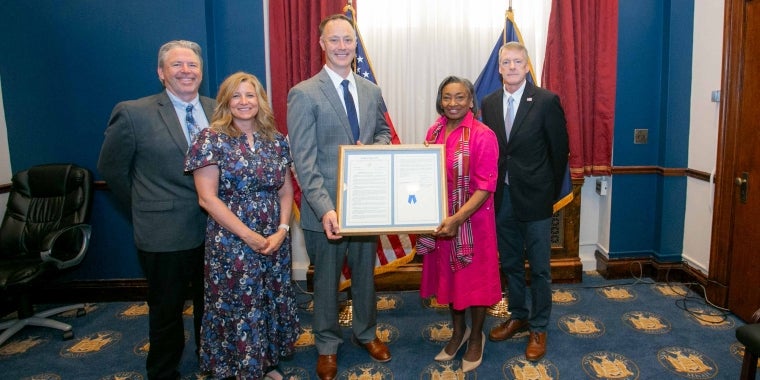
Task Force on Government Efficiency Uncovers Excessive Overtime Spending In State Agencies
Andrea Stewart-Cousins
June 9, 2010
Senator Andrea Stewart-Cousins (35th District- D/WF) announced that the Senate Task Force on Government Efficiency has once again discovered excessive spending practices in State Agencies. The Senate Task Force on Government Efficiency released a report that has found excessive waste within the State Office of Mental Retardation and Developmental Disabilities (OMRDD), recommending a $3.8 million reduction in overtime costs for the agency.
The report recommends that the OMRDD contracts out more of its services and administration of group homes, saving millions of taxpayer dollars each year. Comparing the staffing costs in OMRDD facilities to not-for-profit operated homes in Westchester and the Bronx, the Government Efficiency Task Force found the cost per employee to be significantly higher in OMRDD facilities. Last year alone, the OMRDD spent nearly $70 million on overtime pay, making it the third largest for overtime spending of all State Agencies.
"Today, I am pleased to again share with New Yorkers that the work of our Task Force has found duplicative tasks performed by the Office of Mental Retardation and Developmental Disabilities (OMRDD) and ways to achieve savings. I look forward to continuing to work with Senator Klein and the other members of the Task Force on the review and discussion of smart fiscal practices within all government entities, including OMRDD, so that we may find ways to increase efficiency and reduce wasteful spending. New Yorkers ultimately deserve a higher quality product from their government," said Senator Andrea Stewart-Cousins, Member of the Senate Task Force on Government Efficiency.
The Senate Task Force on Government Efficiency was established earlier this year to investigate unnecessary government expenditures and develop strategies for New York State to eliminate wasteful fiscal practices. Recently, the Senate Task Force on Government Efficiency also examined spending in New York State Department of Correctional Services (DOCS) and the State University of New York (SUNY) system, uncovering millions in potential savings for New York State taxpayers.
Share this Article or Press Release
Newsroom
Go to Newsroom

